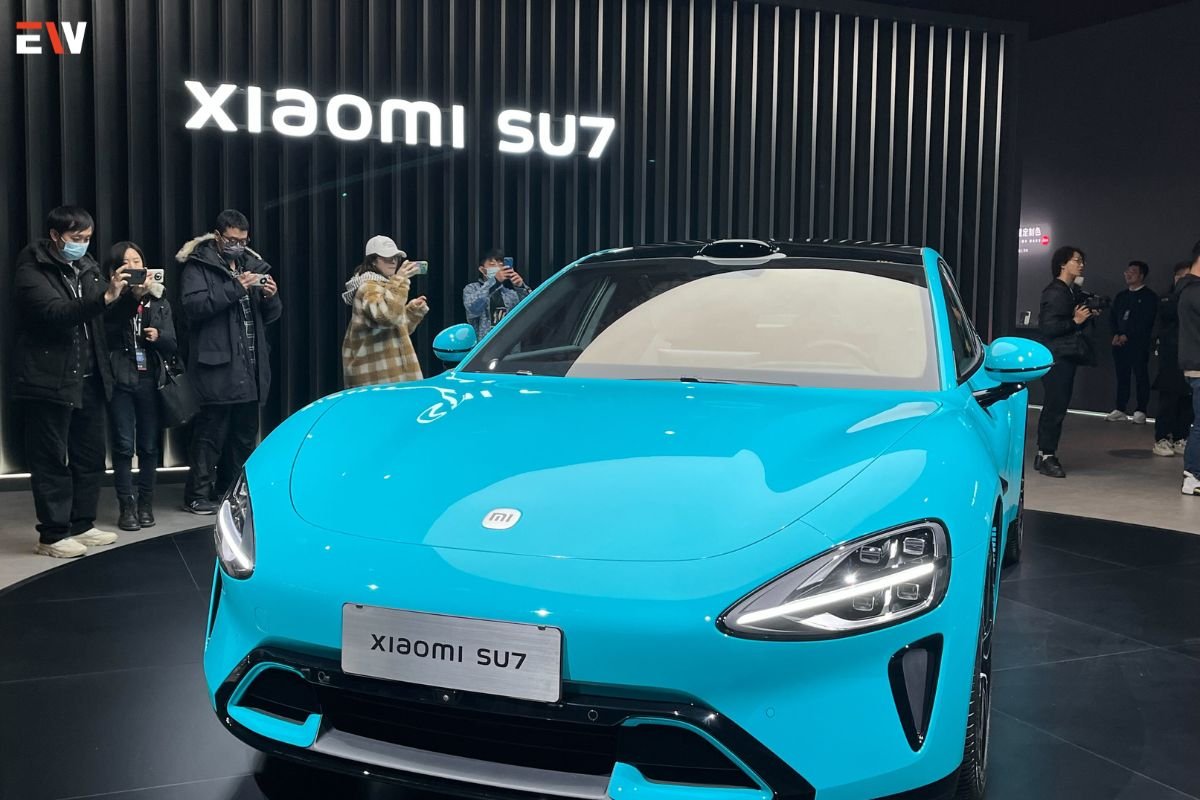Source- CNBC
Xiaomi, the prominent Chinese smartphone manufacturer, has stepped into the electric vehicle arena with the announcement of its first car, the SU7. The move intensifies the ongoing price war in China’s fiercely competitive electric car market. Here are the key details:
Competitive Pricing Strategy
Xiaomi CEO Lei Jun revealed that the standard version of the SU7 will be priced at 215,900 yuan ($30,408) in China, significantly undercutting Tesla’s Model 3, which starts at 245,900 yuan. Despite acknowledging that Xiaomi will incur losses on each sale at this price point, Lei emphasized the company’s commitment to offering a compelling alternative to existing market leaders.
Feature-Rich Offering
Highlighting the SU7’s specifications, Lei asserted that Xiaomi’s electric sedan surpasses the Model 3 on over 90% of its features. Notably, the SU7 boasts a minimum driving range of 700 kilometers (approximately 435 miles), outperforming the Model 3’s range of 606 kilometers. The announcement garnered substantial interest, with orders exceeding 50,000 cars within just 27 minutes of sales commencement.
Manufacturing and Delivery Timeline
Lei provided insights into Xiaomi’s manufacturing capabilities, stating that the company’s fully automated car factory can produce an SU7 every 76 seconds. Deliveries are slated to commence by the end of April, marking a swift entry into the highly competitive automotive market.
Expanding Ecosystem and Market Reach
The introduction of the SU7 aligns with Xiaomi’s broader strategy of building an interconnected ecosystem of devices under its “Human x Car x Home” initiative. Leveraging its HyperOS operating system, Xiaomi aims to integrate its electric car seamlessly with other smart devices. While initially targeting the domestic market, Xiaomi’s President Lu Weibing hinted at future overseas expansion, albeit not before two to three years.
Competitive Landscape and Future Plans
Xiaomi’s foray into electric vehicles places it in direct competition with established players like Tesla, as well as domestic rivals such as BYD, Nio, and Xpeng. Despite aspirations to compete in the premium segment, exemplified by the forthcoming “Max” version of the SU7, Xiaomi acknowledges the challenges ahead. The company’s vision extends beyond affordable smartphones, signaling its ambition to capture a significant share of the rapidly evolving automotive industry.
In summary, Xiaomi’s entry into the electric car market signals a new chapter in the company’s evolution, marked by ambitious pricing strategies, technological innovation, and a commitment to building a comprehensive ecosystem of interconnected devices. As the competition intensifies, Xiaomi aims to carve out a distinct niche, challenging established norms and redefining consumer expectations in the electric car landscape.










